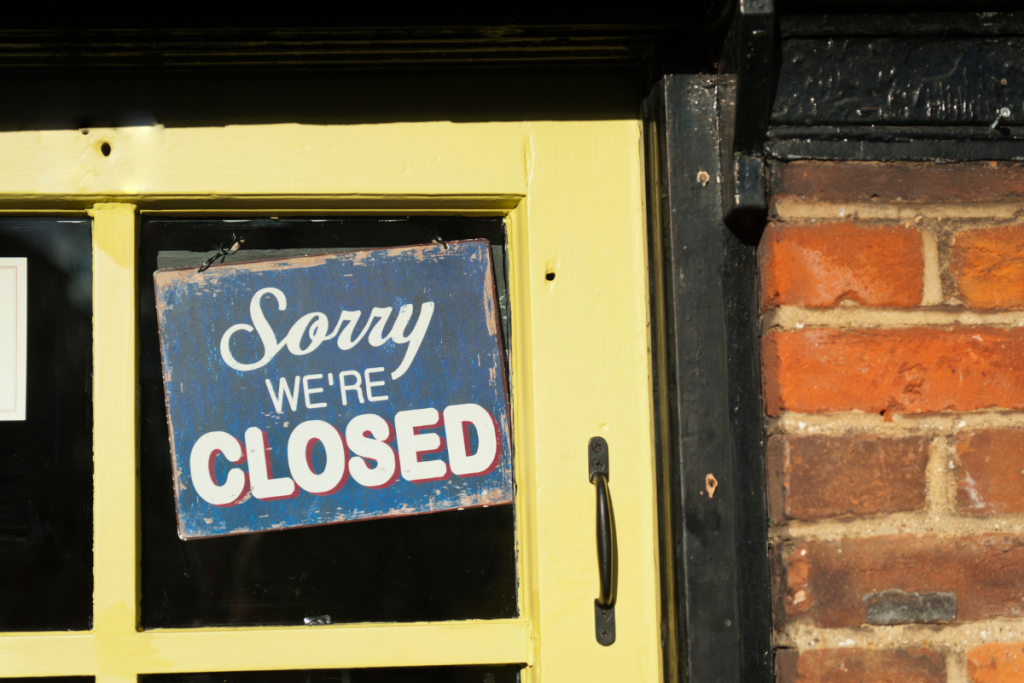Late payments. It’s something that bombastic business leaders might not be that interested in.
Whilst many would rather fill auditoriums (Jordan Belfort style), they often leave payment related issues to other arms of their businesses.
But despite the less glamorous topic, late payment culture can no longer be ignored. Why” Because SMEs are dying because of it.
Some 50,000 small businesses are going into the red because of late payments, and whilst the 2018 government report tries to regulate the behaviour of larger companies, what is it doing to actually help smaller businesses themselves?
This is where Inna Kaushan and her business Solna comes in. Co-founded with business partner, Makera Kigaraba in early 2017, their mission is to help SMEs stay buoyant in a cut-throat payments world where bigger companies, are perhaps surprisingly, only looking out for themselves.
We sit down with the bright-eyed Kaushan to find out more…
The fast facts:
- Founded in?January 2017
- Over £3m processed in invoices since the launchin April 2017
- NPS score of 50
- Trustpilot score 9/10
The inspiration
For Kaushan, the impetus for co-founding Solna came from an emotional place as well as a problem-solving one.
As pillars of the UK economy, she could see the potential small businesses could reach when well operated. However, their progress was being stalled by the brutality of late payments.
“I?d spent the majority of my career working with small businesses and startups, and noticed the persistent frustrations that they were all facing”, says Kaushan.
“Many of these were around cash flow and late payments issues and unfortunately, the processes and software many had in place was inefficient, cumbersome, or just not cutting it”, she continues.
“Policymakers can’t solve this problem alone. A cultural and mindset shift is also needed within the whole business community – from larger businesses, small business owners and their clients. Getting paid on time shouldn?t be a luxury.”
Her future business partner Kigaraba had previously worked at Quickbooks, an accounting software company, and was getting similarly frustrated about the issue. So, with these glaring problems staring them in the face, the two decided to pair up, and build the right solution to put the issue to bed, once and for all.
Why do late payments happen?
“There are a number of factors that contribute to late payments, including unclear payment terms, muddled or disconnected accounting departments, financial issues, lack of resource to chase late payments, and much more,” says Kaushan.
Clearly the reasons are multifaceted, so how can Solna propose to solve them?
“We provide users with access to credit insights on their customers, so they identify risks earlier on. This includes best in class invoicing and the right financial services when required. We feel that by providing these three key services on a single platform, and more importantly, in context, we really do stand a chance of making a difference in this war against late payments,” she says.
The uphill struggle
“There are a few milestones that every startup will go through”, remarks Kaushan about the early days at Solna.
“The list of issues can seem endless, from getting market validation and having the right product-market fit, to getting the right team in place, and raising capital” to name but a few.”
“We wanted to provide the biggest impact we could, to aid the survival and growth of small businesses, and invoices (or income) is where we see businesses continue to struggle.”
So what’s her advice for businesses at the tricky founding and early operation stage Well it’s no walk in the park, and entrepreneurs, by nature of their position, should be ready for this, she says:
“The key is to have a clear vision and to keep working towards it. It takes a lot of hard work and perseverance to build a successful business”.
The toughest moment
Many budding entrepreneurs have a great idea. It’s the nature of the beast. But dragging that idea, kicking and screaming, into the world of marked growth and profits is quite another thing.
“We had a clear idea about what we wanted to build, who we wanted to build it for and why, but it didn?t necessarily work out that way from the beginning”, says Kaushan.
“In the early days of launching Solna, we realised that we weren?t achieving the growth we had anticipated, and quite possibly, we didn?t have the exact product-market fit,” she continues.
But it is at this point that the demarcation between people with great ideas and actually becoming a successful business owner happens, and Kaushan and her co-founder made the cut, but how did they manage it?
“We had to take a step back and accept this period of uncertainty as part of our journey,”‘she says.
“We knew we had a product that solved a real pain point for many, but we had to identify who felt the pain the most and work from there. The good thing about having a small, flexible team is that we were able to quickly make adjustments and learn from the small failures,” she continues.
Why the world needs Solna
“The issue of late payments is yet to be tackled, especially in the way we are doing it,” remarks Kaushan with some confidence.
“To effectively solve the cash flow and late payments issues freelancers and small businesses come up against, they need to be able to minimise the prospect of delays in payment, and plug those cash flow issues when they do occur,” she continues.
“Late payments are not unique to the UK, so we d like to help tackle this problem globally.”
But what new ground does Solna claim to be breaking in terms of proactively dealing with the issue
“We start with education”, says Kaushan.
“Checking the financial health of their clients can be a real game changer if used at the right time,” she continues.
“Educating businesses on the tools they have to their disposal is the first step. We help entrepreneurs understand their customers” ability to pay by giving them access to credit score information within the platform,” she says.
“The majority of small business owners, unfortunately, are not in the habit of checking their customers” credit scores – this is usually because it is too expensive or complex, or because they are not aware of the tools available to them until it is too late,” she continues.
Using tech for impact
“Embedding this information within the platform and offering them all the tools they need to invoice efficiently and automate their credit control will help them minimise delays in payment,” says Kaushan.
“For those times when non-payment is the issue, rather than late payment, customers will be able to leverage financial services instantly from within the platform, and ensure they get paid,” she continues.
Words for Carillion and the government
Although the government’s late payments report from late 2018 marked a step in the issue finally being addressed in the mainstream, the sentiment coming from Kaushan seems to be that it’s all (excuse the pun) a little too late.
When I ask her if she has a special message for May’s government, she’s only too happy to oblige:
“Does the government need to take a tougher stance Hell yes, it does! It’s unacceptable that large firms are able to pay on terms of over 120 days without any consequences,” she says.
“The latest Government report highlighted that only 5% of businesses pay their invoices on time! That is ridiculous! As a result, business owners are having to go to extremes to stay afloat, and in some cases that is not enough and the only way out is to close the business,” she continues.
I then broach the topic of Carillion, the business behemoth that became notorious for delaying to pay its smaller suppliers.
“Carillion were using their suppliers as a line of credit, and a range of small businesses including cleaners, carpenters, plumbers and engineers were left with huge holes in their cash flow,” says Kaushan.
“The lack of regard for the financial health of the smaller businesses bigger corporates work with as highlighted in the Carillion case shows why we need more government regulation around late payments. It also shows that the world needs more companies like us who are proactively trying to stop it”.
You said it Inna, you said it…















































































































































